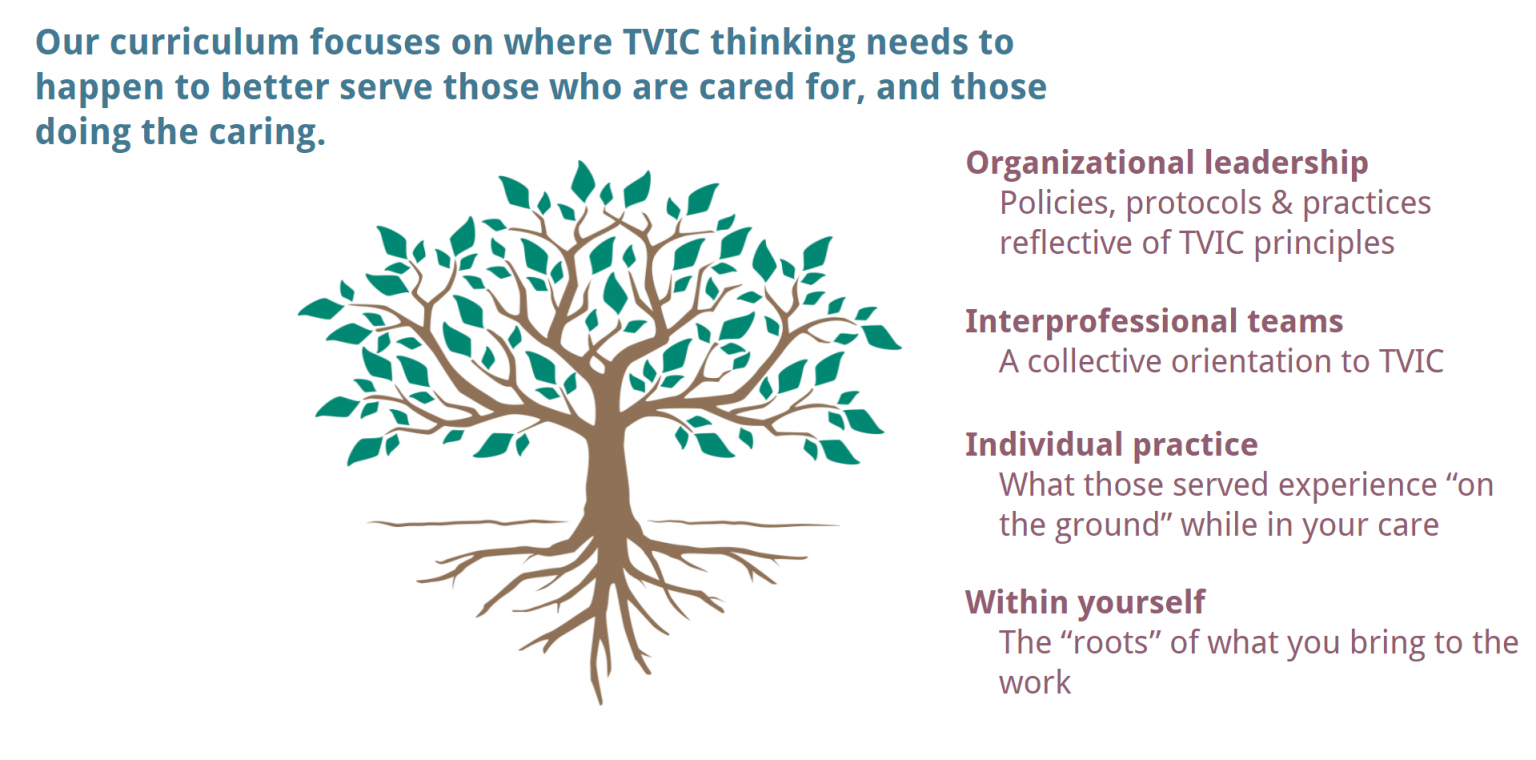This e-learning education provides practical guidance on how to provide care or services in a trauma- and violence-informed way. We call it a “win-win-win”:
- your service users, especially those facing the biggest challenges, will be better served
- you as the care or service provider, staff member, leader, or educator will deliver services or interact with service users in a way that is more effective and acceptable, especially for those who might need extra care, and be more satisfied with your work
- your organization or practice setting will be better aligned with quality of care goals, and with a social justice approach
The curriculum has 7 sections, with embedded videos, case-based activities, a downloadable Notebook for reflection and links to key take-aways, and interactive quizzes throughout. After completing section 7, successfully completing a brief assessment will provide a Certificate of Completion.
This education is for anyone who wants to increase their knowledge and skills when working with people seeking care in health care, social services and beyond. It also supports leaders in developing policies and protocols to support TVIC practice.
How it works…
- Register for the TVIC Curriculum (Completely FREE).
- You can complete the TVIC Foundations in 5-7 non-consecutive hours of self-directed, online participation.
- The learning is self-directed with the learner choosing how much to complete, when and how. The only requirements are linked to the Certificate of Completion, which is generated by successfully completing the end of module assessment. All other quizzes and knowledge checks are optional.
- In undertaking this training, you join an active community of professionals who share a desire to work effectively, respectfully and collaboratively with those they serve.
We thank the Public Health Agency of Canada for financial contributions to this project under the Supporting Pathways to Care for People Who Use Drugs initiative. The work was also supported in part by Nadine Wathen’s SSHRC Canada Research Chair, and through contributions from the Arthur Labatt Family School of Nursing and the Centre for Research on Health Equity and Social Inclusion at Western University.






